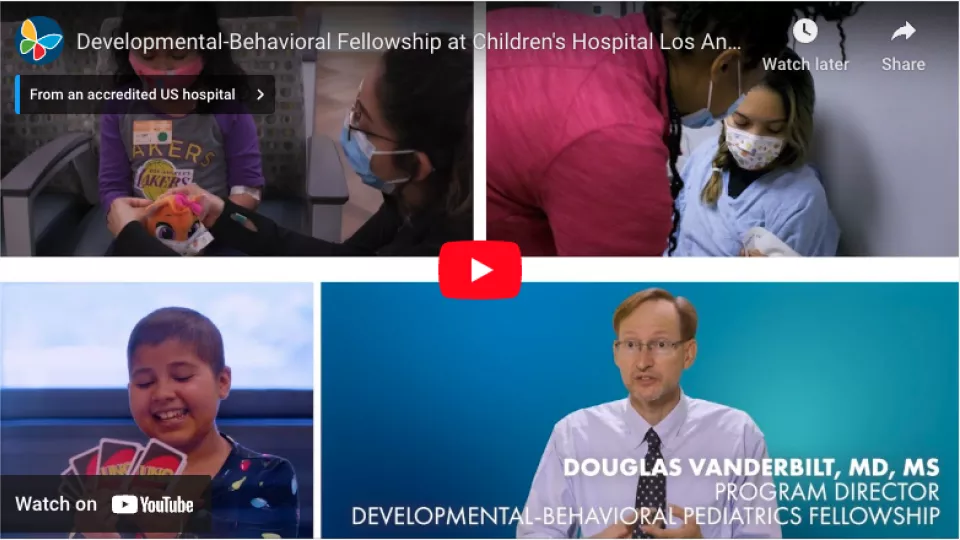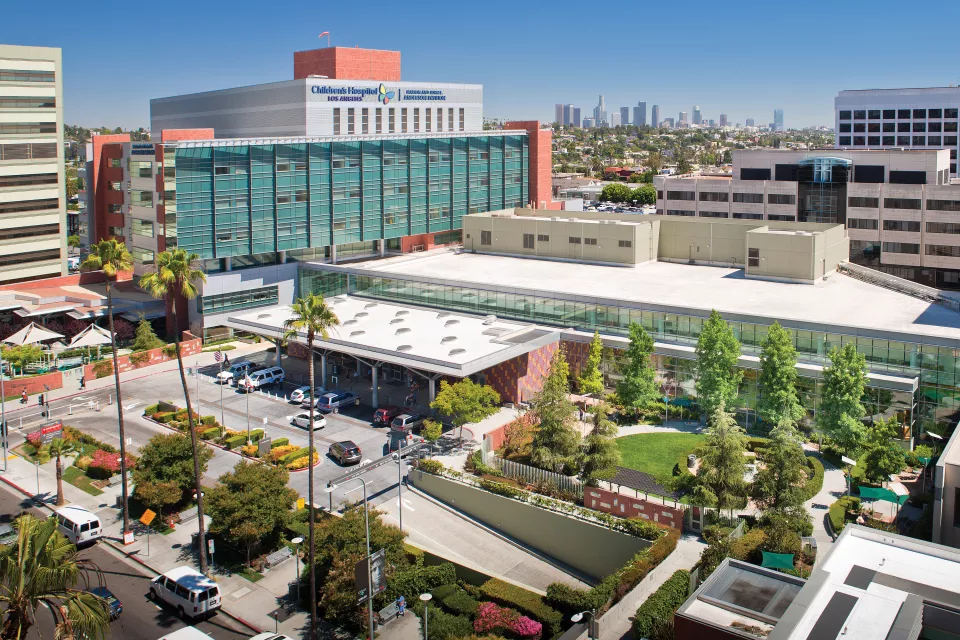
About the Fellowship
The Developmental-Behavioral Pediatrics (DBP) Fellowship is a three-year ACGME accredited academic training program funded by the Maternal and Child Health Bureau DBP Training Program Grant.
Developmental-Behavioral Pediatrics is a unique subspecialty of Pediatrics that focuses on the child’s strengths and challenges within the context of the family using a transactional biopsychosocial perspective. We seek to provide the fellow with the most comprehensive and culturally diverse DBP training program. The overriding goal is to train the next generation of DBP leaders to improve the developmental-behavioral pediatric system of care for a culturally and linguistically diverse population through clinical care, research, teaching and advocacy. The fellow will be well prepared for the Developmental-Behavioral Pediatrics board examination.
Learn More About the Program
Fellows as Care Providers
To train DBP fellows through an ACGME accredited program in the knowledge, attitudes, and skills of DBP to provide clinical leadership in evidence-based, biopsychosocial care by delivering culturally competent and family centered services in interdisciplinary environments for children with developmental-behavioral problems and their families, especially in Southern California.
- Fellows will learn clinical skills in a variety of settings including the hospital's outpatient clinics, the Child Development Center, Institute for the Developing Mind, and the University Center for Excellence in Developmental Disabilities.
Fellows as Scholars
To educate DBP fellows in research, evaluation, and information dissemination skills related to evidence-based practice and research developments in the field, in order to optimize the life course trajectories of children with developmental-behavioral problems and their families through collaborations with the Developmental-Behavioral Pediatric Net, Southern California Clinical and Translational Science Institute (SC CTSI), CA Perinatal Quality Care Collaborative (CPQCC), and the Autism Treatment Network (ATN).
- Research fundamentals are taught in structured and interactive didactics with the goal of a first author publication under the supervision of an experienced mentor and presentation at a national meeting.
Fellows as Advocates
To promote systems-change leadership skill development among DBP fellows, to reduce DBP health disparities, especially in California and the Southwest, by delivering technical assistance (TA) for primary health care professionals and by expanding and strengthening advocacy partnerships with the CA MCH Leadership Network and with local, regional, and national Title V and related programs, including those involved in the Combating Autism Act Initiative.
- Finally, the fellow will acquire administrative experience in developing and running projects in the Developmental-Behavioral program.
- The fellow will receive Leadership Education in Neurodevelopmental and related Disabilities certification.
Fellows as Educators
To train DBP fellows in teaching skills by providing health education strategies to promote knowledge of DBP topics in medical, interdisciplinary and continuing education settings among pediatric primary health care professionals, using various modes ranging from collaborative office rounds (COR) to distance learning.
- The fellow will develop teaching expertise through interactions with attendings as well as pediatric residents, medical students, and trainees from disciplines such as psychology, occupational therapy, speech and language therapy, nutrition, social work, and others.
Health Provider Education
To provide medical students, pediatric residents and providers from pediatric primary care and other relevant disciplines with the knowledge and skills to promote systems-change, improve access to care and enhance the quality of life for children with developmental-behavioral problems, especially in Southern California.
- Fellows will train with other healthcare providers in interdisciplinary clinics such as high risk infant follow up, feeding, early childhood, school age, spina bifida and child abuse team. Subspecialists from genetics, neurology, neonatology, physical medicine, adolescent medicine, psychiatry, and others will provide consultation for the fellow.
For more information about our nationally recognized Children’s Hospital and the DBP field, see the following websites:
University Center for Excellence in Developmental Disabilities
Developmental Behavioral Pediatrics
American Academy of Pediatrics
How to Apply
For more information regarding our training goals or to discuss the program further please contact:
Dr. Douglas Vanderbilt, Program Director: Email or call 323-361-6994
Kayla Rathi, Program Coordinator: Email or call 323-361-6733
Program Fast Facts
ACGME Accredited: Yes
Fellows per year: 2
Application Deadline:
September 1st
Duration: 3 years
Postgraduate Training Required: 3 years
Salary Minimums:
Post Graduate Year 4: $84,073.60 minimum
Post Graduate Year 5: $87,401.60 minimum
Post Graduate Year 6: $90,667.20 minimum
Post Graduate Year 7: $93,828.80 minimum
Post Graduate Year 8: $96,948.80 minimum
Post Graduate Year 9+: Please contact gme@chla.usc.edu
Benefits Include: Health and dental insurance, 14 days paid vacation+ 6 protected sick days, yearly educational stipend, monthly meal stipend, and 401(k) matching up to 3%
